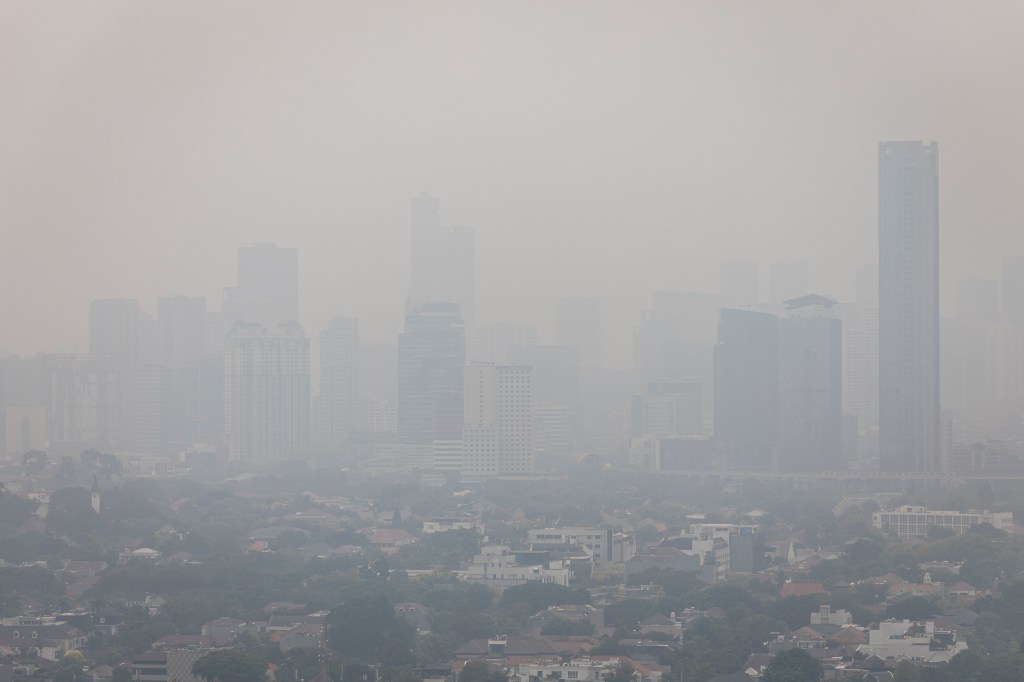Building sustainable health systems to manage the burden of NCDs
The convergence of climate change and a rising burden of non-communicable diseases (NCDs) threatens to undermine decades of progress in public health. These dual challenges require integrated solutions.

By Pam Cheng, Executive Vice President, Global Operations, IT & Chief Sustainability Officer, AstraZeneca
At the first United Nations (UN) High-Level Meeting on NCDs thirteen years ago, world leaders committed to strengthening national action on the prevention and management of NCDs.1 Relatively absent from the debate at the time, however, was a crucial factor—the impact of climate change on human health.
Today, the evidence is all too clear. The burden of NCDs is rising rapidly and climate change, from extreme heat and weather events to air pollution and water scarcity, is exacerbating the toll of these diseases, including cardiovascular diseases, respiratory illnesses, and cancers.2 One year out from the fourth UN High-Level Meeting on NCDs, it’s essential that efforts to address the NCD crisis and climate action go hand-in-hand.
Stalling Progress on NCDs
This year’s UN General Assembly takes place against a sobering backdrop. Only a handful of countries are on track to meet Sustainable Development Goal 3.4, which aims to reduce
premature mortality from NCDs by one third by 2030.3 Many health systems are continuing to deal with a backlog of NCD screenings and referrals due to the impact of COVID-19, with the World Health Organization (WHO) estimating that 55% of countries experienced disruption to cancer diagnosis and treatment alone during 2020.4 This has led to poorer health outcomes and a higher resource burden on over-stretched health systems.
The growing evidence linking climate change to the rise in NCDs paints a bleaker picture still, with extreme weather events, food system disruptions, and air pollution driving a rise in NCDs – which already account for 74% of all deaths globally.5 Data shows that if global temperatures continue to rise, heat-related deaths could grow by 370% annually.6 These impacts are felt disproportionately by vulnerable populations including young people, older people, those with existing medical conditions and disadvantaged communities. For example, in 2021 air pollution contributed to over 700,000 deaths of children under five, highlighting the urgent need to address these stark health inequities.7
Mitigating Our Climate Impact
On a more positive note, today we have more tools and knowledge at our disposal than ever to address these intertwined challenges. First and foremost, we know we must stop contributing to the problem. Healthcare alone contributes around 5% of global greenhouse gas emissions, and there is growing momentum within the sector to decarbonise.8 For example, the Sustainable Markets Initiative Health System Task Force, a collaboration of global CEOs and health leaders, is working to accelerate the transition to net-zero health systems. Members recently came together to launch a green power sourcing agreement in China. This agreement is the first of its kind for the health sector in China and aims to secure 200GWh of renewable electricity annually, which is expected to reduce emissions by 120,000 tons of CO2 per year – comparable to taking 25,000 cars off the road.9 A similar agreement is now also in development in India, demonstrating what can be achieved when
we harness the power of cross-sector collaboration and take serious responsibility for reducing our environmental impact.
Supporting Locally-led Adaptation
In addition to mitigating our impact, we must help communities already affected by climate change adapt to this reality. This situation is particularly acute in Africa, where the costs of adapting to extreme weather could be $30-50 billion per year over the next decade.10 There are no easy answers here; we need comprehensive solutions that strengthen overall health system resilience and ensure quality care is delivered at the right time throughout the patient pathway, ensuring no one is left behind.
AstraZeneca’s Healthy Heart Africa (HHA) programme exemplifies best practice through its comprehensive focus on strengthening the health workforce and expanding access to early screening, diagnosis, and quality care to combat heart and kidney diseases in nine African countries. These diseases, worsened by the climate crisis that disproportionately affects vulnerable populations,11 have been addressed by the programme over the past decade.
So far, HHA has trained over 11,000 healthcare workers, conducted 57 million blood pressure screenings, and identified 11 million people with elevated readings. This success has been underpinned by the programme’s strategic emphasis on early intervention and delivering care at the community level. By cultivating robust public-private partnerships, HHA ensures that strategies for preventing and controlling NCDs are firmly grounded in local leadership and expertise. We must learn from these success drivers if we are to scale our efforts in the future.
Securing a Healthier Future for All
As world leaders gather in New York this month for Climate Week NYC and the UN General Assembly to discuss global development and solutions to our most pressing challenges, we must prioritise making health systems more resilient and able to deliver equitable outcomes in the face of the rising burden of NCDs which is exacerbated by climate change. While progress has been slow and too many inequities remain, we know more today than we did a decade ago – both about the nature of the challenges we face and how to scale solutions to address them. Together, we can – and we must – secure a healthier future for all.
1 https://www.un.org/en/ga/ncdmeeting2011/index.shtml
2 https://www.who.int/news/item/02-11-2023-climate-change-and-noncommunicable-diseases-connections
3 https://www.thelancet.com/NCD-Countdown-2030
4 https://www.who.int/publications/i/item/WHO-2019-nCoV-EHS_continuity-survey-2020.1
5 https://www.who.int/news-room/fact-sheets/detail/noncommunicable-diseases
6 https://www.thelancet.com/journals/lancet/article/PIIS0140-6736(23)01859-7/fulltext
7 https://www.unicef.org/press-releases/air-pollution-accounted-81-million-deaths-globally-2021-becoming-second-leading-risk
8 https://www.thelancet.com/journals/lancet/article/PIIS0140-6736(22)01540-9/fulltext
9 https://www.sustainable-markets.org/news/five-global-healthcare-leaders-secure-industry-first-multi-party-agreement-to-access-renewable-power-in-china/
10 https://wmo.int/publication-series/state-of-climate-africa-2023
11 https://doi.org/10.1016/S0140-6736(23)01859-7
